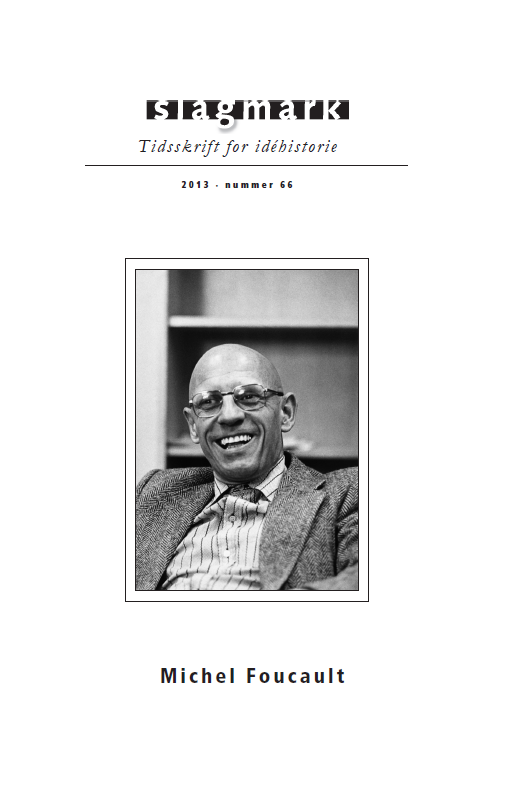For en ikke-instrumentell bruk av historien
DOI:
https://doi.org/10.7146/sl.v0i66.104226Nøgleord:
Michel Foucault, retroduction, problematization, use of historyResumé
The aim of this article is a critical reflection on how Michel Foucault ‘uses history’ in his writings. Our main points are the following: On the one hand, the historical material is critical for the theoretical developments of Foucault. On the other hand, it is impossible to reduce the historical material to given facts. To validate these points, we have tried to unite two relatively new interpretations of Foucault’s work. First, the concept of ‘retroduction’, as it is developed by Jason Glynos and David Howarth (2007), will be used as a fitting description of the relationship between the empirical and theoretical dimensions of Foucault’s work. Then we will further elaborate on this ‘way of working’ by employing Judith Revel’s highlighting of the concept ‘problematization’ in her recent commentaries on Foucault. These two points are united in a demonstration of how the ‘foreign material’ in Foucault’s historical analyses generates movement in his thought and demands the construction of new and fitting analytical concepts. By all this we aim to demonstrate a specific ‘use of history’ in Foucault’s work; a use of history that isn’t instrumental to his theoretical aims but rather a generative and retroductive use of history that is conditional for his theoretical developments.
Downloads
Publiceret
Citation/Eksport
Nummer
Sektion
Licens
Ophavsretten til artiklerne i Slagmark deles mellem forfatter og Forlaget Slagmark.
Artikler og tekstmateriale publiceret i Slagmark må citeres, downloades og videresendes for ikke-kommerciel brug, under forudsætning af normal akademisk reference til forfatter(e) samt tidsskrift, årgang, nummer og sider.
Brug og distribution af tekstmateriale både i form af papirkopier og elektroniske kopier, til undervisningsbrug på uddannelsesinstitutioner og intern brug er tilladt efter aftale med Copydan Tekst & Node. Brugen skal ske inden for aftalens rammer.
Artikler og tekster må kun genudgives med eksplicit tilladelse fra forfatter(e) og tidsskriftet med en anerkendelse af værkets første publicering i nærværende tidsskrift.





